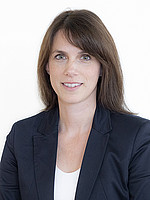
- Funding: Future Fund of the Salzburg University of Applied Salzburg
- Projektleitung: DI Cornelia Ferner, BSc and FH-Prof. Dr. Eva Lienbacher
- Laufzeit: March 2022 to February 2024
The Austrian Federal Ministry of Education, Science and Research sees digitization as one of the central guiding themes for science and research, analogous to the European Commission's "Digital Education Action Plan". As providers and producers of knowledge, universities are active shapers of the digital transformation. A key aspect here is the better use of digital technologies for teaching and learning.
The use of "artificial interaction partners" or chatbots as a support tool in teaching is also becoming increasingly important in the course of the current wave of digitization. Since chatbots are currently in use in many industries (cf. e.g. German Red Cross - "Do you have questions about your donation?" onsite chatbot; Decathlon - "Where is my delivery?" WhatsApp chatbot or Symptoma - "Covid19 symptom clarification" onsite chatbot), know-how about technological development regarding possible opportunities and risks in the use of chatbots in practice is also advantageous for students. There are also numerous starting points for research activities, as the use of chatbots is currently being examined from various perspectives in numerous high-quality scientific journals.
For the reasons mentioned above, the planned project is dedicated to the use of chatbots in teaching at the FH Salzburg. In principle, chatbots can take on different tasks in teaching, such as answering frequent questions, mentoring activities, or simulating experts as counterparts in (professional) situations, in which the chatbot takes on the role of e.g. customers, patients, etc. In the present project, two different application scenarios are tested through pilot projects.
In the first run, the interdisciplinary project addresses students from four study programs in engineering, social sciences and economics as its primary target group. Through the continuous documentation and evaluation of the project content, it is possible to make the collected know-how available internally to the entire teaching staff of the FHS (e.g. tutorials/workshops). Furthermore, the collected knowledge can fertilize new research projects and university partnerships.
Contact

Cornelia Ferner, BSc
Department Information Technologies and Digitalisation
Room: Urstein - 424

Eva Lienbacher
Senior Lecturer
Department Business and Tourism
Room: Urstein - 213